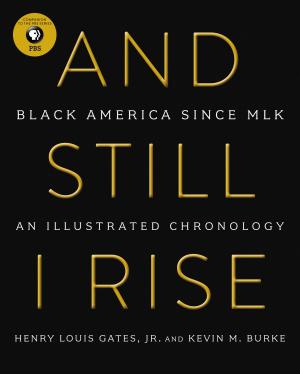A Force So Swift
Mao, Truman, and the Birth of Modern China, 1949
Nonfiction, History, Asian, China, Social & Cultural Studies, Political Science, International, International Relations, Americas, United States, 20th Century| Author: | Kevin Peraino | ISBN: | 9780307887252 |
| Publisher: | Crown/Archetype | Publication: | September 19, 2017 |
| Imprint: | Crown | Language: | English |
| Author: | Kevin Peraino |
| ISBN: | 9780307887252 |
| Publisher: | Crown/Archetype |
| Publication: | September 19, 2017 |
| Imprint: | Crown |
| Language: | English |
**New York Times Book Review Editors' Choice • Winner of the 2018 Truman Book Award
A gripping narrative of the Truman Administration's response to the fall of Nationalist China and the triumph of Mao Zedong's Communist forces in 1949--an extraordinary political revolution that continues to shape East Asian politics to this day.**
In the opening months of 1949, U.S. President Harry S. Truman found himself faced with a looming diplomatic catastrophe--"perhaps the greatest that this country has ever suffered," as the journalist Walter Lippmann put it. Throughout the spring and summer, Mao Zedong's Communist armies fanned out across mainland China, annihilating the rival troops of America's one-time ally Chiang Kai-shek and taking control of Beijing, Shanghai, and other major cities. As Truman and his aides--including his shrewd, ruthless secretary of state, Dean Acheson--scrambled to formulate a response, they were forced to contend not only with Mao, but also with unrelenting political enemies at home. Over the course of this tumultuous year, Mao would fashion a new revolutionary government in Beijing, laying the foundation for the creation of modern China, while Chiang Kai-shek would flee to the island sanctuary of Taiwan. These events transformed American foreign policy--leading, ultimately, to decades of friction with Communist China, a long-standing U.S. commitment to Taiwan, and the subsequent wars in Korea and Vietnam.
Drawing on Chinese and Russian sources, as well as recently declassified CIA documents, Kevin Peraino tells the story of this remarkable year through the eyes of the key players, including Mao Zedong, President Truman, Secretary of State Acheson, Minnesota congressman Walter Judd, and Madame Chiang Kai-shek, the influential first lady of the Republic of China.
Today, the legacy of 1949 is more relevant than ever to the relationships between China, the United States, and the rest of the world, as Beijing asserts its claims in the South China Sea and tensions endure between Taiwan and the mainland.
**New York Times Book Review Editors' Choice • Winner of the 2018 Truman Book Award
A gripping narrative of the Truman Administration's response to the fall of Nationalist China and the triumph of Mao Zedong's Communist forces in 1949--an extraordinary political revolution that continues to shape East Asian politics to this day.**
In the opening months of 1949, U.S. President Harry S. Truman found himself faced with a looming diplomatic catastrophe--"perhaps the greatest that this country has ever suffered," as the journalist Walter Lippmann put it. Throughout the spring and summer, Mao Zedong's Communist armies fanned out across mainland China, annihilating the rival troops of America's one-time ally Chiang Kai-shek and taking control of Beijing, Shanghai, and other major cities. As Truman and his aides--including his shrewd, ruthless secretary of state, Dean Acheson--scrambled to formulate a response, they were forced to contend not only with Mao, but also with unrelenting political enemies at home. Over the course of this tumultuous year, Mao would fashion a new revolutionary government in Beijing, laying the foundation for the creation of modern China, while Chiang Kai-shek would flee to the island sanctuary of Taiwan. These events transformed American foreign policy--leading, ultimately, to decades of friction with Communist China, a long-standing U.S. commitment to Taiwan, and the subsequent wars in Korea and Vietnam.
Drawing on Chinese and Russian sources, as well as recently declassified CIA documents, Kevin Peraino tells the story of this remarkable year through the eyes of the key players, including Mao Zedong, President Truman, Secretary of State Acheson, Minnesota congressman Walter Judd, and Madame Chiang Kai-shek, the influential first lady of the Republic of China.
Today, the legacy of 1949 is more relevant than ever to the relationships between China, the United States, and the rest of the world, as Beijing asserts its claims in the South China Sea and tensions endure between Taiwan and the mainland.















